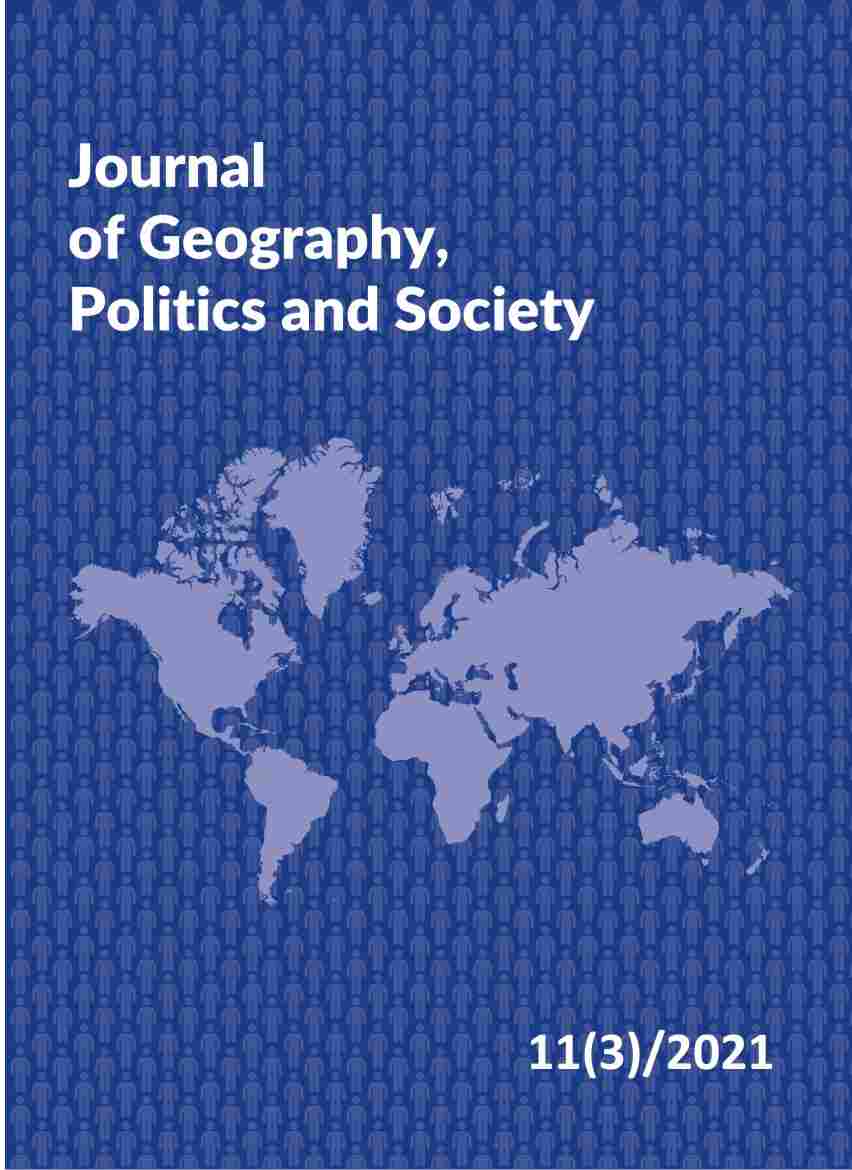Methodological problems before regional development in the conditions of post COVID-19 governance
DOI:
https://doi.org/10.26881/jpgs.2021.3.04Keywords:
regional development, region, methodology, problems, structure, managementAbstract
This article is devoted to the theoretical problems of regional development in the conditions of post COVID-19 management. The text mphasizes the fundamental nature of regional development as a new scientific field, which has its own accumulation of knowledge, based on social sciences and natural sciences. The article focuses on problems with clarifying the place of regional development in post-crisis management. It is accepted that regional development has an important role in managing territorial problems and achieving a pulling development of individual spatial areas. In this direction, the very functional role of regional development brings to the fore the need for targeted measures and policies of a socio-economic nature. Some aspects of the regional development of scientific research are also presented. Emphasis is placed on the connections of regional development with other scientific directions and its role for effective geo-urban development, local self-government and local communities.
Downloads
References
Cheung A.B.L., 2005, The Politics of Administrative Reforms in Asia: Paradigms and Legacies, Paths and Diversities, Governance, 18(2), 257–282. doi: 10.1111/j.1468- 0491.2005.00275.x.
Dimitrov K., 2021, Important shades in the meaning of military culture – an etymological study, Research Papers of UNWE, 1, 127–164.
Dimov N., 2008, Geografiya i teoriya: Kartografiya na prirodnosotsialniya sintez (Eng. Geography and Theory: Cartography of Natural and Social Synthesis), University Publishing House „St. Kl. Ohridski” Sofia.
Georgiyev L., 2006, Regionalna ikonomika (Eng. Regional Economy), Izd. NBU, Sofia Hägerstrand T., 1955, Statistiska primäruppgifter, flygkartering och „data processing”-maskiner: ett kombineringsprojekt. (Eng. Primary statistics, flight mapping and „data processing” machines: a combination project), Svensk Geografisk Årsbok, 31, 233–255.
Hägerstrand T., 1992, The global and the local, [in:] U. Svedin, B.H. Aniansson (Eds.), Society and the environment: a Swedish research perspective, Kluwer Academic Publishers, Boston, 13–21.
Haggett P., 1983, Geography: a modern synthesis, Harper & Row, New York. Hartshorne R., 1979, Notes towards and bibliography of the nature of geography, Annals Association of American Geographer, 69(1), 63–76. doi: 10.1111/j.1467-8306.1979. tb01231.x.
Hartshorne R., 1935, Recent Developments in Political Geography, The American Political Science Review, 29(6), 943–966.
Karakashev Hr., Geneshki M., 1980, Regionalna ikonomika (Eng. Regional economy), Sciense and art, Sofia.
Karastoyanov S., 2008, Politicheska geografiya, geostrategiya, geopolitika (Eng. Political geography, geostrategy, geopolitics). Izd. Sv.Kl. Okhridski, Sofiа ISBN 9789540727561.
Kimble G.H.T., 1951, The Inadequacy of the Regional Concept, [in:] L.D. Stamp, S.W. Wooldridge (Eds.), London Essays in Geography, Longmans, Green & Co., Harlow, 492–512.
Lavrov S.B., 1989, Geoekologiya: teoriya i nekotoryye voprosy praktiki (Eng. Geoecology: theory and some practical issues), Izvestia VGO, 121(2), 119–126.
Naydenov Kl., 2017, Influence of the demographic factor on the regional social and economic development, [in:] SGEM2017 Conference Proceedings. Book 4, Vol. 1, 363–370. doi: 10.5593/sgemsocial2017/41/S18.046.
Petrov K., 2015, Regionalna politika na Evropeiski sauz i Bulgariya (Eng. Regional Policy of the European Union and Bulgaria), Izd. Stopanstvo, Sofia.
Stoychev K., 2020, The Multiplication of Inherited Defects and Its Impact on the Emergence of New Spatial Conflicts. Evidences from Post-socialist Sofia, [in:] V. Mihaylov (Ed.), Spatial Conflicts and Divisions in Post-socialist Cities, Springer Nature, Cham, 191–209.
Yokomichi K., 2005, New Relationship between Prefecture and Municipality – Two Tiered System after Big Merger- (in Japanese), Toshi Mondai, 96(3), 48–55.

 Academic Scientific Journals
Academic Scientific Journals




